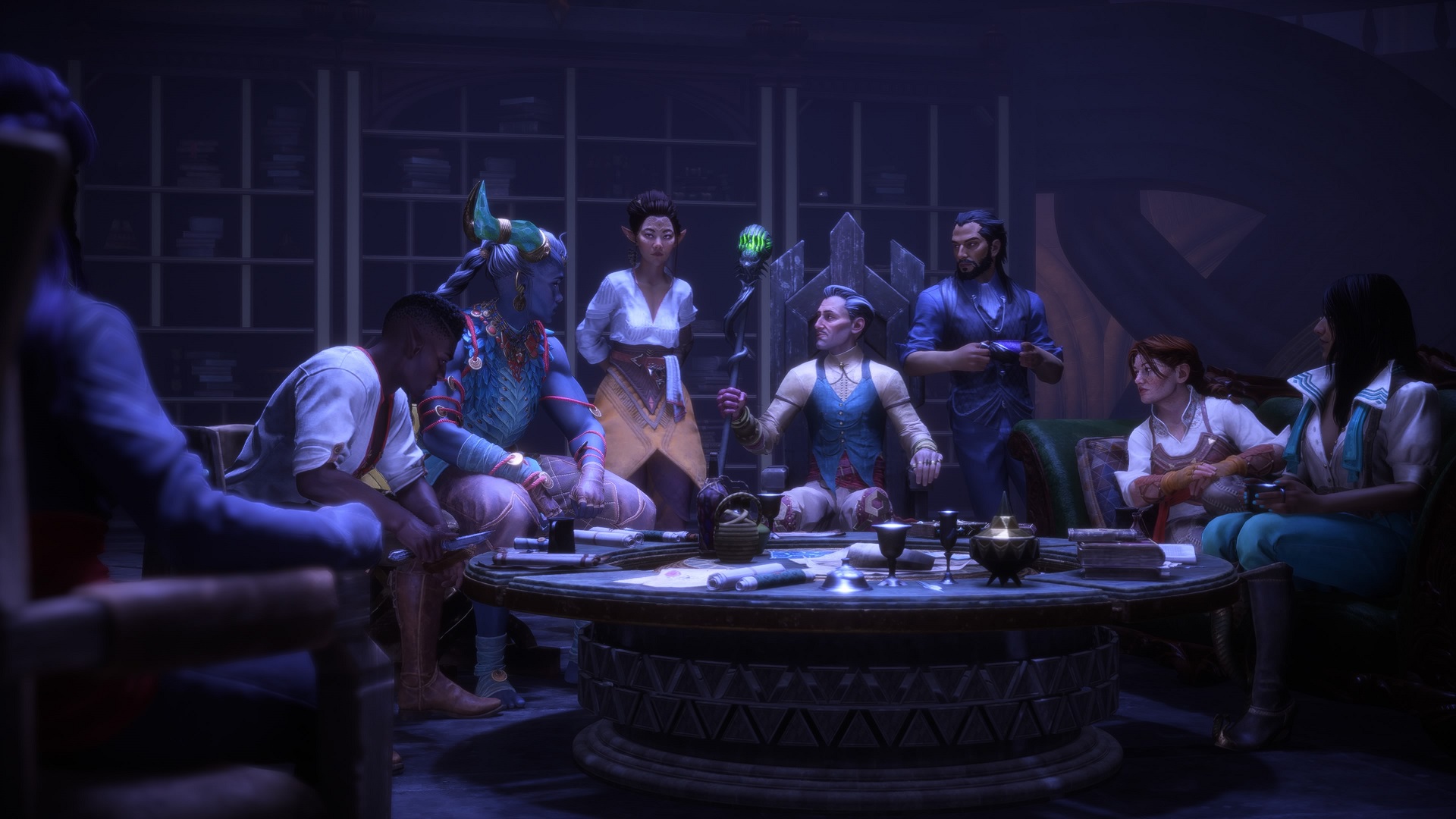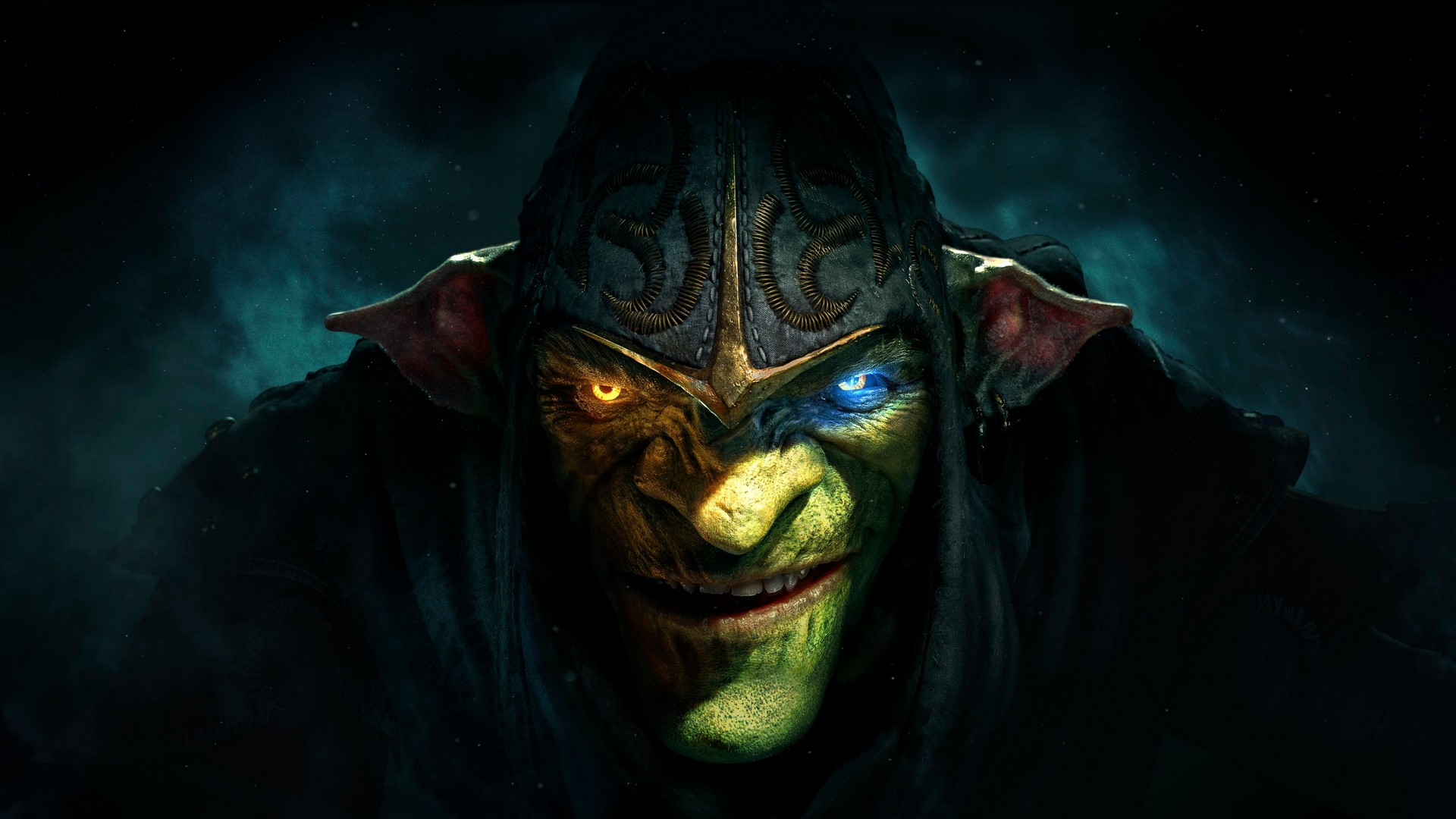GamesRadar+ Verdict
Dragon Age: The Veilguard is an approachable, expansive action-oriented RPG and feels like a true end to whatever the franchise was before. The book's not finished, but a significant chapter has closed. While Dragon Age: The Veilguard is undoubtedly different in many ways from its predecessors and takes lessons learned from Mass Effect to heart, there's a lot to love – mechanically and narratively – about the new normal and what is hopefully a foundation for what's to come.
Pros
- +
Captivating companions with rich arcs
- +
Action-oriented combat that's tough but fair
- +
Catnip for lore nerds
Cons
- -
Few meaningful inflection points beyond the end
- -
Somewhat linear hub areas to explore
Why you can trust GamesRadar+
In many ways, Dragon Age: The Veilguard feels like a true return to RPG form for BioWare. Traversing the world of Thedas with pals, juggling abilities and stats and levels and skill points, and making questionable choices with narrative repercussions is exactly what I would have wanted out of a new Dragon Age game, and The Veilguard certainly delivers on all of that and more.
It's by no means perfect, and I have my fair share of frustrations with it after roughly 76 hours. But between surprisingly satisfying combat mechanics and lovingly crafted narrative arcs that touch on everything from mortality to identity to family, it's hard to fault the game too much over minor quibbles.
Even after devoting an obscene amount of hours to Dragon Age: The Veilguard over an extremely short period of time, my overwhelming feeling as the credits rolled wasn't relief at being done so much as curiosity at what I could have possibly done differently. Satisfied, but eager for more, which is the highest possible praise for an RPG like this.
Combative behavior
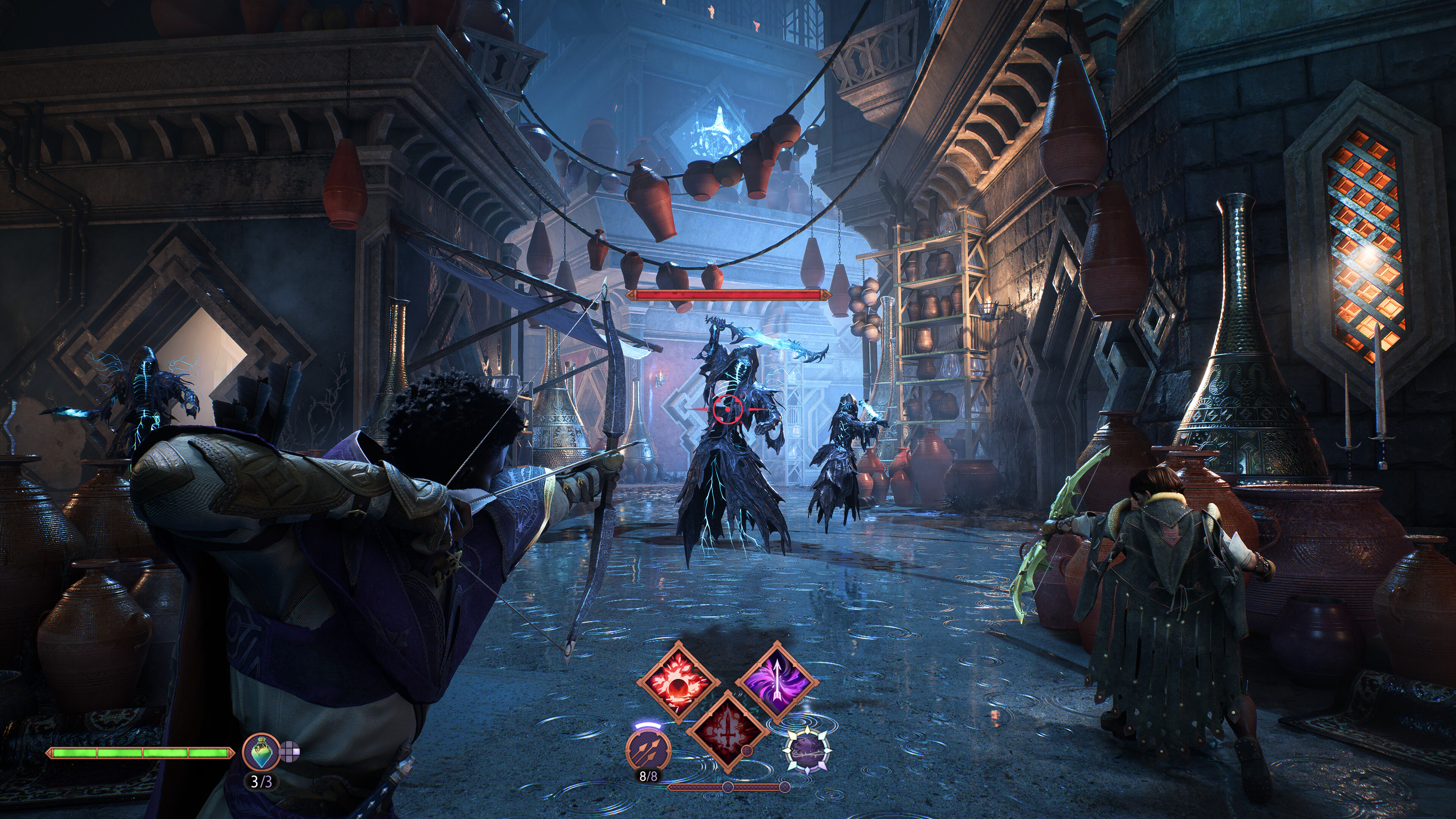
Release date: October 31, 2024
Platforms: PC, PS5, Xbox Series X/S
Developer: BioWare
Publisher: Electronic Arts
Dragon Age: The Veilguard's combat completes the series' slow transition over the years from a classic CRPG – think Baldur's Gate with its tactical, almost grid-based battles – into something more akin to fantasy Mass Effect, becoming an action RPG where you swing swords and cast magic in real time. This is not exactly new news as BioWare has been moving in this direction ever since Dragon Age: Origins got put on the shelf, but it has certainly reached a natural conclusion in Dragon Age: The Veilguard.
Picking between Warrior, Mage, and Rogue at the start affects the cadence of play, and speccing into one of three specializations for each allows you to refine your style further, but combat plays out similarly regardless of those choices. It's a mix of quick positioning, weapon attacks, class abilities from you and your two tag-along companions, your specific Ultimate ability, runes, and a whole lot of ugly enemies that want to bash your head in.
You can dodge, you can defend, and you can even make a ranged attack – in my warrior's case, tossing her shield to and fro, hither and yon. There's a lot going on, and early on I frequently struggled to keep track of both the chaos of combat as well as the cold hard math beneath it.
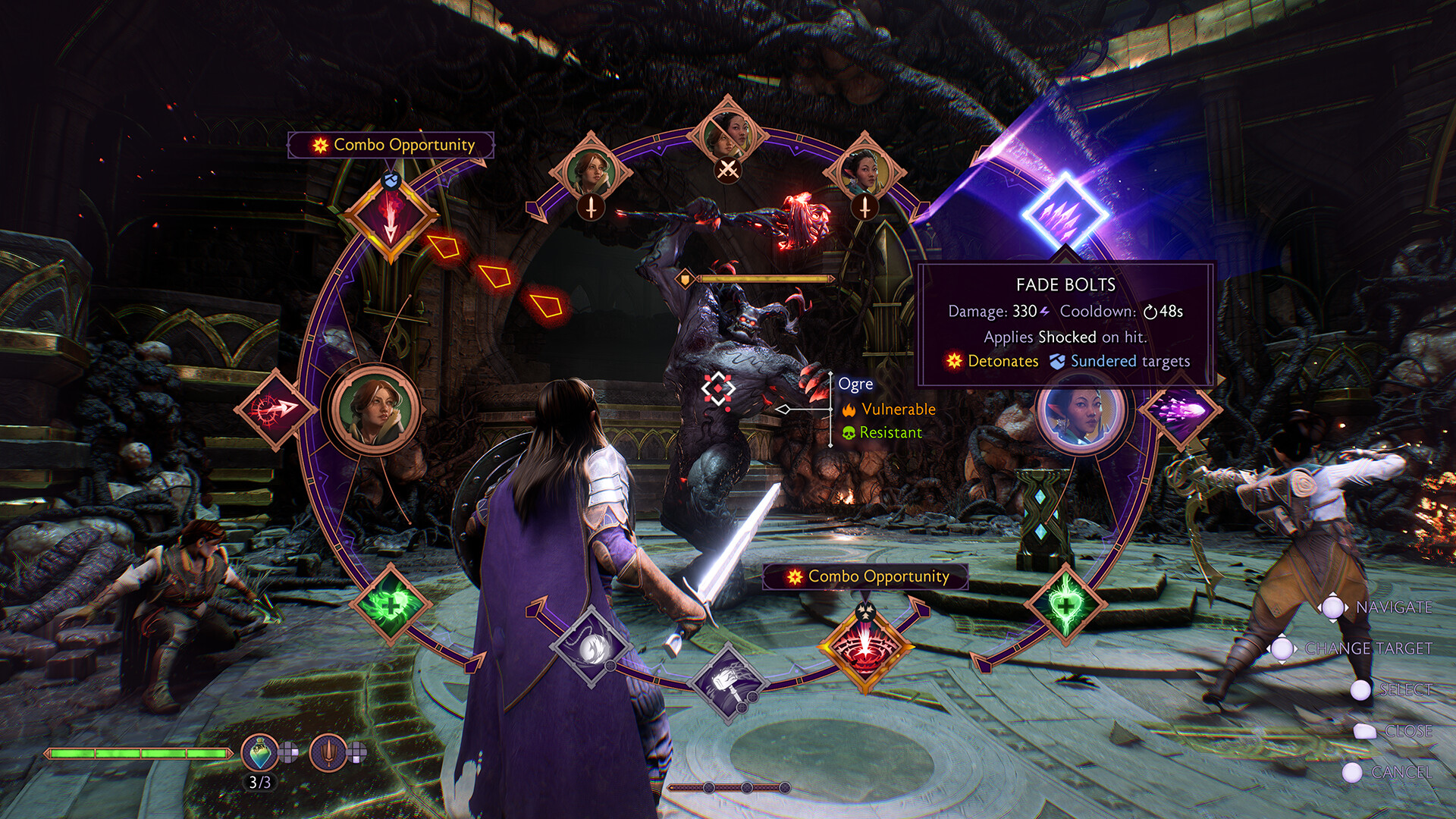
In time, Dragon Age: The Veilguard's scuffles became second nature. I'd picked up or upgraded enough items that my warrior was dealing a whole mess of bonus fire damage as well as inflicting burning on enemies with a hefty amount of death also being dealt through shield tosses.
Weekly digests, tales from the communities you love, and more
Bellara, my elven tinkerer mage, and Harding, the dwarf rogue with her deadly bow, served to lock enemies down through magic or detonations (one ability from one companion causing a debuff, another from a different companion making it explode with much fanfare) while I sliced and diced and generally set everything ablaze.
It's not my personally preferred comfort zone when it comes to combat mechanics, as I've usually found tactical turn-based combat more to my liking. I'd typically find myself grumbling alongside all the other curmudgeons about this long-coming real-time shift, but I have to admit: it does work. Having Neve, my detective mage companion, freeze a whole bunch of enemies along one side while I helped detonate a bunch of critters on the other only to turn around and shatter the frozen baddies remained extremely satisfying all the way through to the end.
Into the deep lore
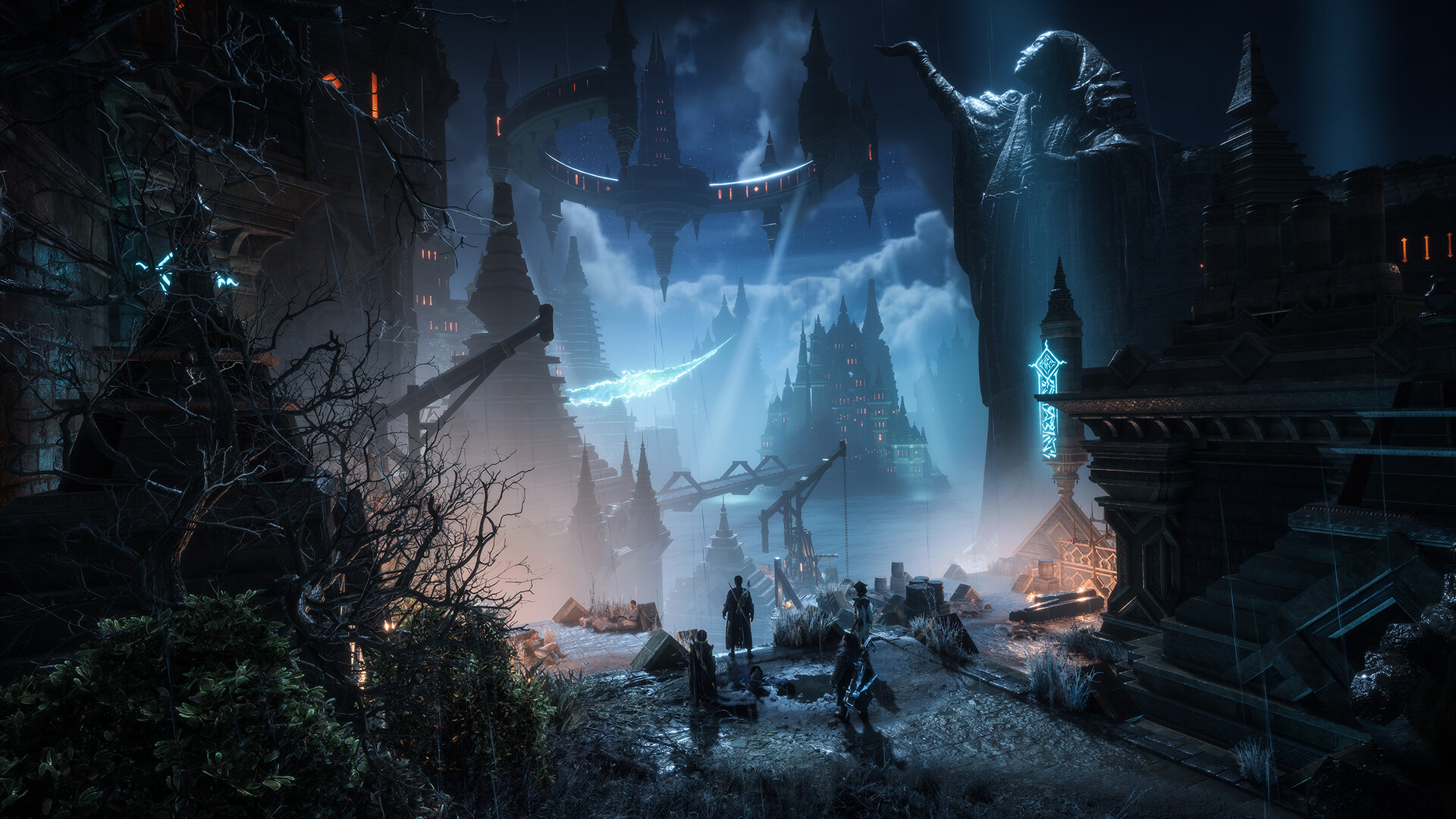
For the fourth game in a mainline fantasy gaming franchise with a unique setting and massive amounts of worldbuilding behind it, Dragon Age: The Veilguard is about as approachable as it can be for both new players and those that have previously thanked the Maker. Appropriate context is given when proper nouns are brought up, going some way to avoid being impenetrable and making it as fine a point of entry as any to dive into. But it also answers many questions that longtime players have had over the years… while introducing even more tantalizing hints at what might come next. My only hope is that we don't have to wait another 10 years to find out more.
The main antagonists of Dragon Age: The Veilguard are two would-be tyrants and ancient self-styled elven gods that have been accidentally freed. If you're not familiar with the previously established pantheons and cosmology, knowing that Elgar'nan and Ghilan'nain of the Evanuris have been released from their prison in the Fade behind the Veil due to Fen'Harel's ritual being interrupted is just a mush of proper nouns. Instead of relying on that level of knowledge, the game attempts to provide context early on whenever those are dropped, tying together through dialogue as an example the concepts of "Evanuris" and "ancient elven gods who basically were just powerful mages."
That doesn't mean that there aren't plenty of callbacks, cameos, references, and so on to everything that's come before. For people like me that have played and loved each Dragon Age game as they've been released over the years, there's enough to fill… well, a codex. It's just either contextualized or presented in a manner that adds depth rather than explicit meaning.
For example, if you've never played Dragon Age: Inquisition, you might simply think "cool music" as you wander around Dock Town to the dulcet tones of bards and their music. But if you have, you might instead be able to pick out the chords of 'Sera Was Never' if not the lyrics.
Choice of company
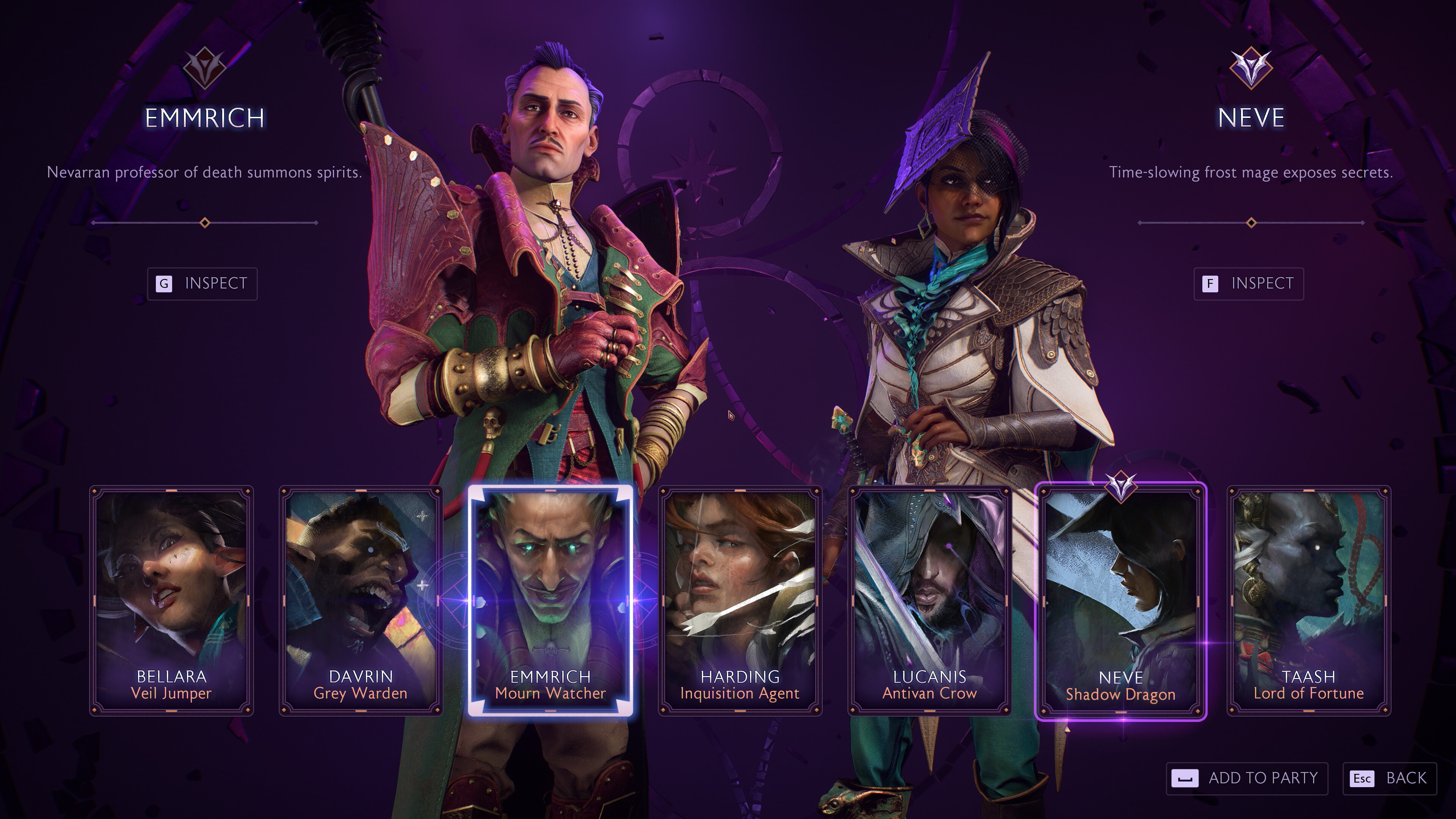
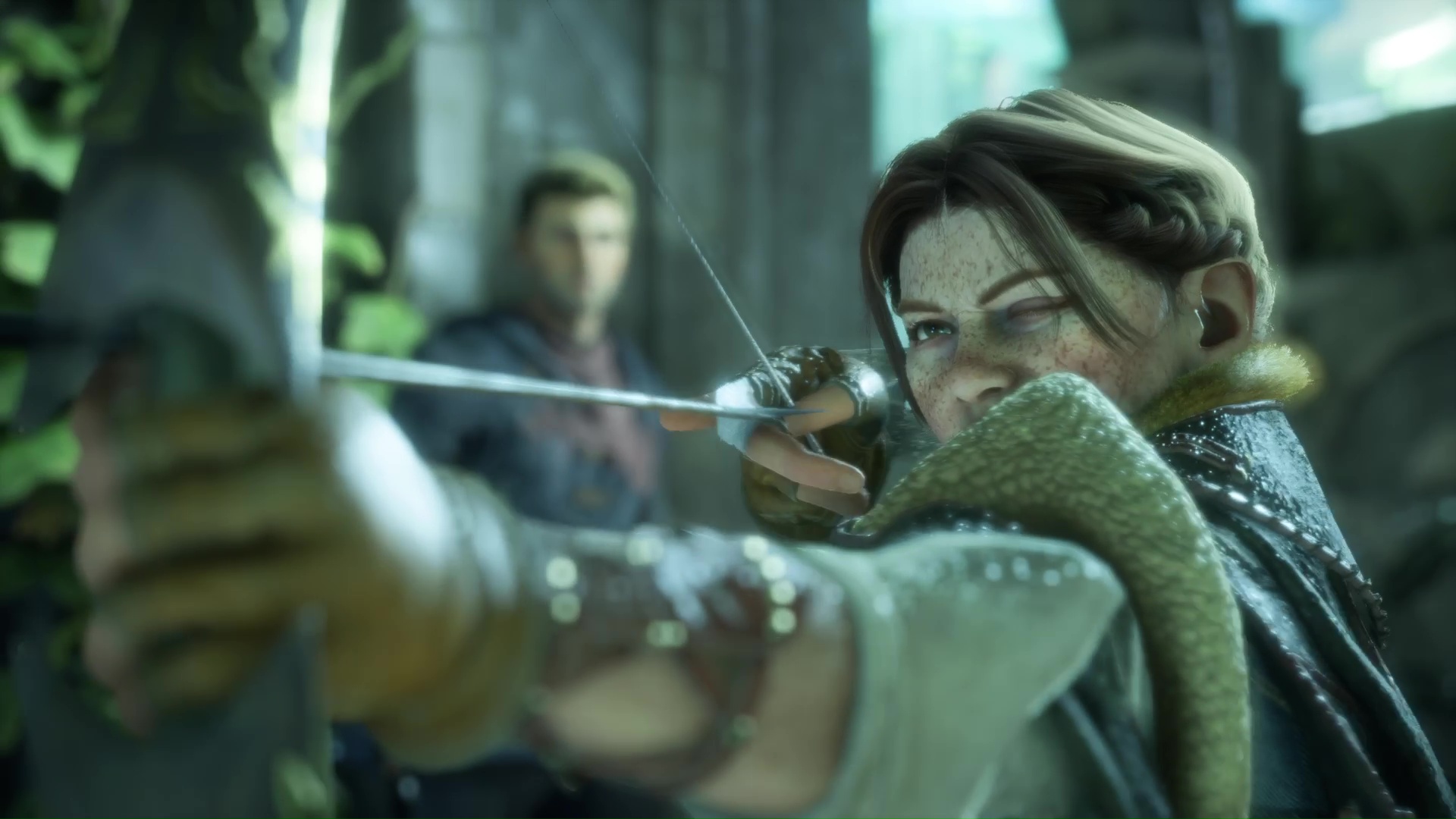
While dropping to two companions from Inquisition's three is a bummer, one change to companions that is appreciated is the new system that lets them pick up conversations where they left them. For example, rather than interrupting Harding talking about the Stone only to never hear the rest, she'll come back with a, "Right, where was I?" to finish it.
Without spoiling any particular outcomes, Dragon Age is famous for being a franchise about companions and your relationships with them as well as meaningful choices followed by consequences, and Dragon Age: The Veilguard very much continues this lineage. With six factions, seven companions, and dozens of hours in total of running about the northern part of Thedas, there are a lot of different ways to get it right as well as absolutely beef it.
Missions come in effectively three types: main story, companion, and a combination faction and region. That's also roughly the priority of them as main story quests are what might be considered the critical path and everything else is supplementary, though you're likely going to have a bad time in the end if you ignore everything that isn't specifically moving the core plot forward.
All of these largely meander through one specific region associated with each faction – Dock Town for the Shadow Dragons, Arlathan Forest for the Veil Jumpers, and so on – with a few additional points of interest as well as your base of operations, the Lighthouse, where you can spend time with your pals and collectively plan what to do next. On paper, it might seem like a small amount of space to traverse, but it doesn't feel particularly small while playing and the ability to dip in and out of areas for different quests as you please means you're often only really stuck in one place for as long as you want to be.
This is all very much my bread and butter, narratively and mechanically, and if the constraints of this review weren't so specific about spoilers I would happily write one twice as long about the "hows" and the "whys" and the "what it all means at the end of the day." For the most part, it really works; all of it. I even accurately speculated in my notes about a major reveal an entire week before I confirmed it, though plenty of other twists and turns I never saw coming.
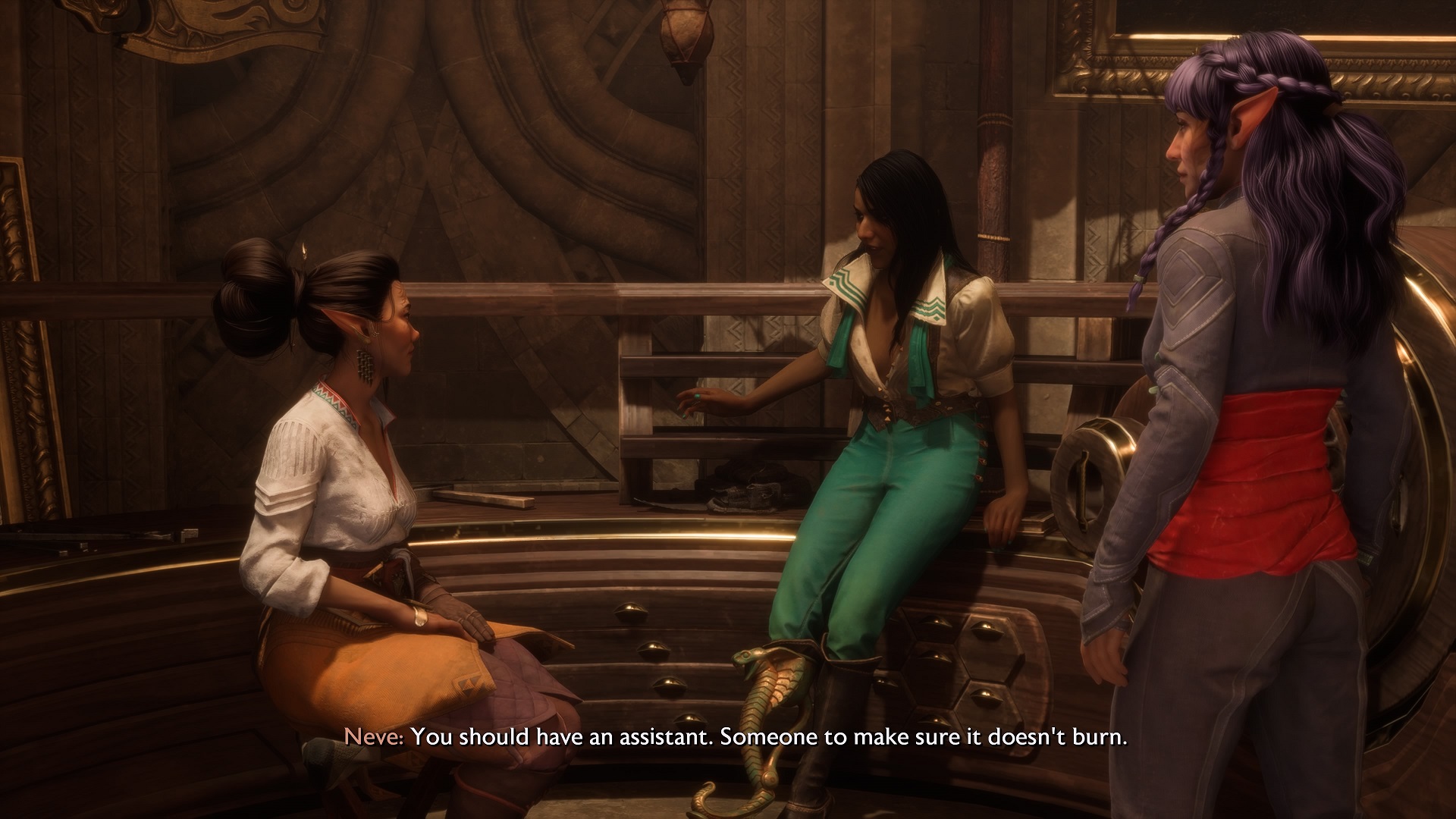
But while I love all of my stupid companions equally – Taash was a romance dark horse for me that came out of nowhere, and you'll understand why if you play – I found the vast majority of choices to be lacking significant teeth. Barring the very end of the game, I struggled with basically only a single choice, and even that one left a sour taste in my mouth despite the significance due to the fact that it appeared seemingly out of nowhere and ultimately locked me out of some progression by automatically failing a series of quests I hadn't gotten around to quite yet. It's a relatively small gripe for a game the size and scope of Dragon Age: The Veilguard, but one that will likely frustrate many others.
Perhaps coloring all of this for me is that one of the earliest events of my career was an E3 2009 hands-on briefing for Dragon Age: Origins where I haphazardly played through the Dalish elf origin. There is a kind of beautiful symmetry to playing Dragon Age: The Veilguard 15 years later, and I can only hope that I've aged as gracefully as a writer as Dragon Age has as a franchise. Newer, shiny and different than it was, but very much featuring the same solid foundation as before.
Despite some small caveats, playing through a new Dragon Age game after 10 long years has been both personally cathartic and surreal, and likely would have been even if I'd not genuinely largely enjoyed myself throughout. To absolutely butcher the Grey Warden motto in service to my point, if this was all a war for our collective time and money, Dragon Age: The Veilguard feels like a victory.
Not able to play Dragon Age: The Veilguard yet or just looking for more like it? We've got the best RPG games for you to take a look at, or the best BioWare games for something closer!
Dragon Age: The Veilguard was reviewed on PS5, with a code provided by the publisher.

Rollin is the US Managing Editor at GamesRadar+. With over 16 years of online journalism experience, Rollin has helped provide coverage of gaming and entertainment for brands like IGN, Inverse, ComicBook.com, and more. While he has approximate knowledge of many things, his work often has a focus on RPGs and animation in addition to franchises like Pokemon and Dragon Age. In his spare time, Rollin likes to import Valkyria Chronicles merch and watch anime.
